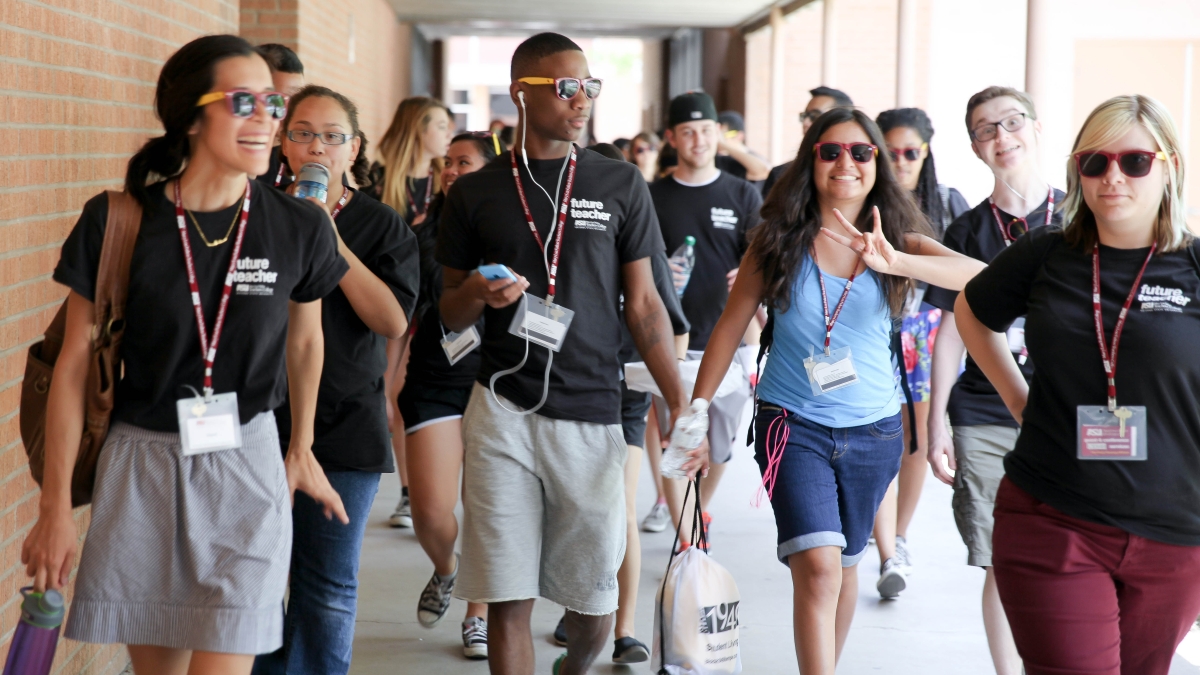Young students receive opportunity to attend ASU education camp

For one week each summer at Arizona State University’s Polytechnic campus, high school students from around the nation come together to learn what it takes to be a teacher at the Hunnicutt Future Educators Academy. In June of 2014, more than 30 students participated in the overnight camp hosted by Mary Lou Fulton Teachers College – many on scholarship.
Devon Ferguson, a senior from Harper High School in Chicago, heard about the camp – named after the late Harold B. Hunnicutt, a former professor of education at ASU – from his school counselor, who encouraged him to apply. After submitting a statement indicating his interest and financial need, he received a full scholarship to make the trek to Arizona and explore what it would be like to pursue his passion: becoming a special education teacher at his former elementary school.
“Teaching means a lot to me because you can help to change somebody’s life,” Ferguson said – a sentiment made even more powerful when you learn that his high school, which was featured in a February 2013 NPR news story, is located in a Chicago neighborhood plagued by gang violence. “I want to show kids that anything is possible if you go for it.”
A total of $5,000 in funding was made available this year to qualified Hunnicutt participants by Teachers College’s Office of the Dean. Ferguson was one of about 20 students who received full or partial funding to attend the academy, which typically costs nearly $400 per person.
“It’s nice to help someone who wouldn’t otherwise have had that opportunity,” said Corey Stevenson, a student recruitment coordinator senior in Teachers College who helps lead the camp experience.
While scholarship consideration is given to students from both in- and out-of-state, it is particularly helpful for those students who also may incur travel expenses to attend. This year, out-of-state Hunnicutt participants traveled to the Phoenix area from Nevada, California, Ohio and Illinois.
“No matter where these students are from, or what their background, when they all get together, they’re just kids and care about the same things,” Stevenson said.
Aside from simply hanging out and having fun, for Ferguson, that meant touring the ASU athletics’ facilities on the Tempe campus and hearing from current faculty and students about what it means to be in college and major in education.
He expressed particular excitement over the high employment rate for Teachers College alumni. An ASU exit survey of 2012-2013 graduates found that 93 percent of Teachers College undergraduate students pursuing jobs were employed or had at least one job offer 90 days after graduation.
And to sum up his experience? Ferguson had just three words: “Camp was awesome.”

